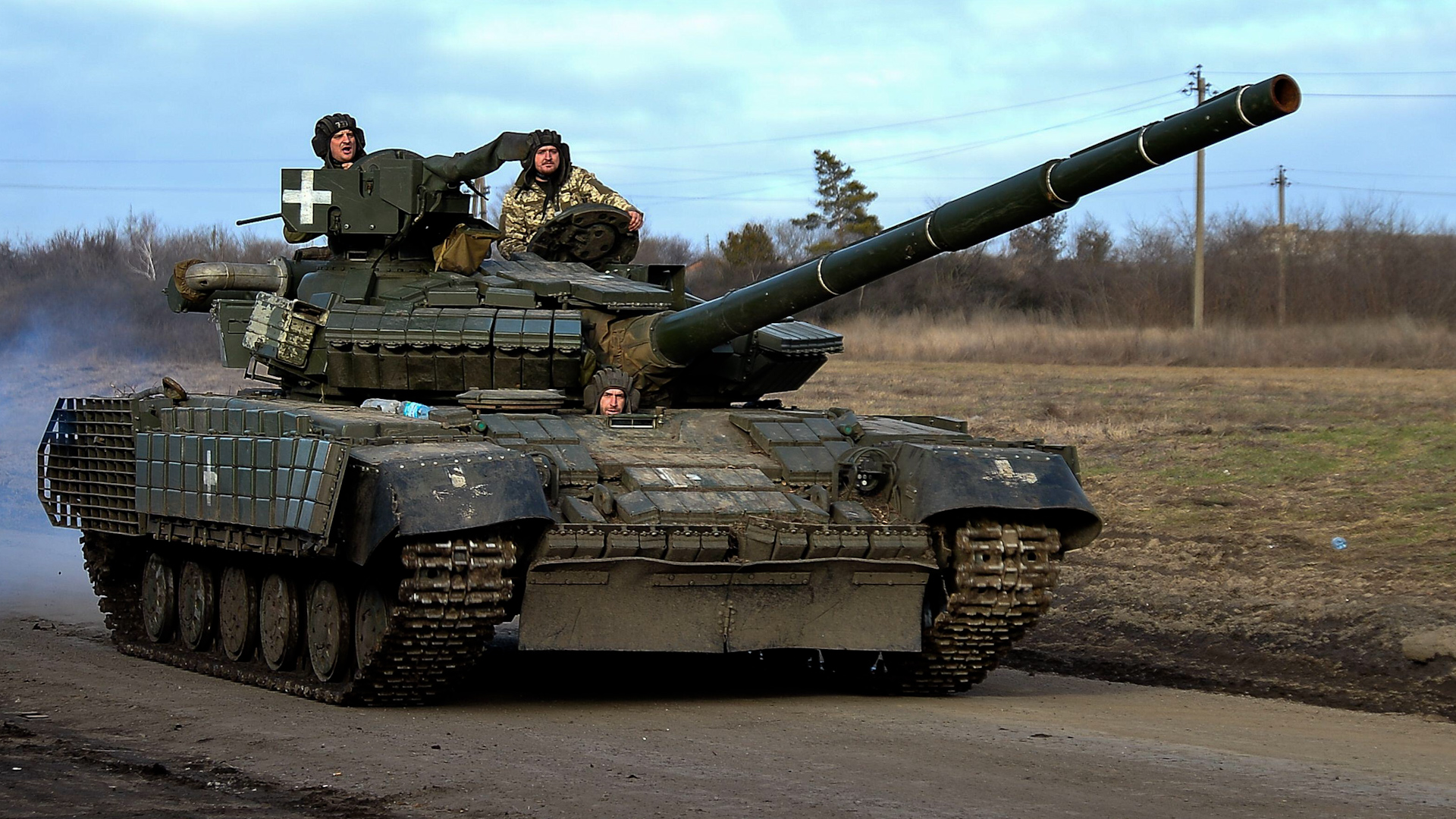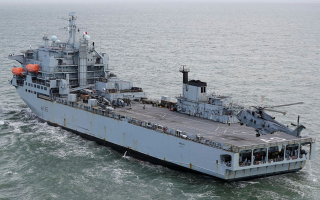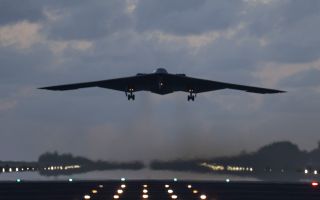
Sitrep: Why harder ground and low ammunition might mean a new Russian offensive

Russia could be about to launch an opportunistic offensive at a number of locations in Ukraine, which may force Kyiv into making some big tactical decisions.
A number of journalists, alongside resident expert Professor Michael Clarke, were speaking on the latest episode of the Sitrep podcast - which analyses the top defence stories of the week and is available wherever you get your podcasts.
One of the reporters, Tom Mutch of the Byline Times, returned from the frontline in Ukraine three weeks ago.
He told the Sitrep podcast he had heard from commanding officers in Kup'yans'k that the Russians had been keeping plenty of troops and armoured vehicles in reserve.
"They were saying effectively 'we think that they're getting ready for a much bigger push'," he said.
"Now, the thing is that the weather in Ukraine over the last month or so hasn't been great… but we're just getting to the season now where the grounds are firming out and hardening and if you wanted to make any mechanised push, you really could.
"We know that the Russians have been keeping a lot of soldiers and vehicles in reserve.
"We know the Ukrainians have spent the last couple of months sort of digging trenches and laying down barbed wire and dragon's teeth… as if their lives depend on it, which I guess they do.
"We might not see, you know, a huge Russian offensive on all parts of the front, but we're probably at the very, very least going to see a new wave of localised offensives."
His sentiment was echoed by Prof Clarke, who said the next wave of Ukrainian offensives might take the form of "armoured thrusts".
He also said the Russians see an opportunity at the moment as the Ukrainians do not have enough ammunition to fight on all fronts.
Prof Clarke said if Ukrainian commanders thought Western ammunition would arrive in quantity soon, they would bring all their stocks forward and hold the expected Russian push.
But the Ukrainian are not confident this ammunition will arrive in time, forcing them to keep rationing their stock.
"That means that they'll just lose ground as gradually as they can," he said.
"So their desperate calculation is, do we bring it all forward now and use it and we can stop the Russians in their tracks, but then we're empty or do we preserve it because we don't really think the Western ammunition is going to arrive in time? Big, big problem."
This conundrum facing the Ukrainians was seen first-hand by Mr Much while he was reporting in Ukraine.
He explained that during an embed with an artillery unit, located close to Russian lines, it was made very clear to him just how important artillery ammunition is to Ukrainian forces.
"About an hour before we arrived, [Ukrainian forces] got a new delivery of shells and what happened is that the Russians conducted an assault, not an offensive, but just just a small sort of assault of the kind that they do every couple of days on a series of Ukrainian positions," he said.
"The gun that normally [Ukrainian forces] say can only fire a couple of times a day, they just banged out about 10 to 12 shots right in front of us in about half an hour.
"They sort of turned around to us and they were like, 'look, this is what we can do when we have all the shells, we stopped them in their tracks, this is really the only thing that we need to keep going."
So, what would a series of localised attacks look like for Ukraine?
Prof Clarke said Ukrainian forces could do well enough in static defence, but it would mean they would have to "pull back if the Russians keep on pushing, so they will lose territory doing that, but they hope that they won't lose too much".
He also said the Ukrainians were trying to goad the Russians into concentrating on the north and the east, but Russia would like to take back the ground it lost in Kharkiv.
"If they could take that back and grab Kharkiv, the second city, that would feel like a big victory for them," he said.
"The Ukrainians have got a fair chance of defending, though, in the north because they're in a better position to do it.
"But if the Russians push in the south, particularly the Dnipro and Zaporizhzhia… it would look as if they were able to run up the Dniester River all the way to Kiev, so the war would suddenly start to look decisively different."
While this new wave of Russian attacks continues to be expected, Iryna Sysak, a journalist in Kyiv for Radio Free Europe Radio Liberty, told the Sitrep podcast "Russia never stopped pushing".
"Two years of full-scale war, there [were] no days Russia didn't push and didn't try to capture Ukrainian territory," she said.
"But I want to emphasise [that] whether Russia will succeed or whether it will [fail] depends on the military help to Ukraine and whether Ukraine will have ammunition and weapons to defend itself.
"Russia sees that Ukraine is in very hard conditions, we don't have enough ammunition, we have problems with military aid.
"So in these conditions, Russia as can be assumed, see this situation and try to push harder at the moment."
She also explained how Ukrainian President Volodymyr Zelenskyy said Ukraine was expecting a full-scale attack in May or June.
"The mood in the country is very different because people now understand that we are already entering the phase of a protracted war," Ms Sisak explained.
"Comparing the situation in 2023, it was more optimistic. People believed more in victory in the counter-offensive."
You can listen to Sitrep wherever you get your podcasts, including on the Forces News YouTube channel.







